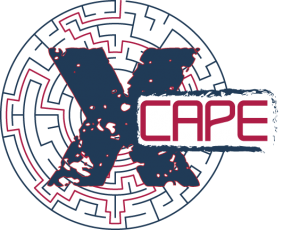
The MAKER SCHOOLS project commenced on 1 December 2020. It is one of numerous recent initiatives to make students more interested in and better prepared for STEM studies and career. It is built on the rationale that STEM education needs to respond to the latest changes in technology and industry demands but, at same time, it also needs to become more inclusive, engaging and attractive to students.
MAKER SCHOOLS contributes to this overarching goal by focusing on 3D technology and exploring its link with Programming. These two areas are chosen as they can develop students’ creativity, innovation and problem-solving skills, demonstrate the connection between STEM and the production process, allow for the seamless integration of STEM into Arts & Design, and promote student engagement. 3D technology produces results that students can see and touch, which can make STEM activities more agreeable to otherwise reluctant learners.
Objectives of the project
The project’s overall objective is to enable the application of 3D design and printing in STEM education in secondary schools.
The specific objectives are to:
- Provide teachers and students with learning/teaching resources on 3D design and printing, and on the application of the Python programming language in 3D design and creative explorations of 3D models
- Equip teachers with methodological and didactic guidance for the design and delivery of STEM education in the area of 3D technology.
3D technology is becoming cheaper and increasingly affordable, as well as easily adapted to a greater variety of uses. The MAKER SCHOOLS project will provide schools and their teachers with the tools, confidence and support to do the best with this technology in both curricular and extracurricular activities once it arrives in their school.
Activities
The main activities of the project are:
- Developing teaching and learning materials
- Involving teachers and students in debate and co-creation in order to find the best way of integrating 3D technology into learning
- Organizing demonstrations and practical workshops for students and teachers, allowing them to acquire hands-on experience with 3D technology and programming
- Training teachers in order to enable them to continue using and experimenting with 3D technology in their work with students.
Expected impact
The project plans to achieve the following impact:
- Raise awareness that 3D technology and its integration with Programming create many opportunities for improving the quality of curricular teaching and for delivering engaging and effective extracurricular STEM and STEAM (STEM and Arts) education
- Raise awareness that 3D technology can prove suitable to otherwise reluctant STEM learners
- Raise awareness that 3D technology can be integrated into Informatics and Computer Science studies in order to build competitive skills and knowledge
- Create new professional development opportunities for teachers in STEM and all other disciplines
- Open up new avenues for preparing students for Industry 4.0 requirements.
The project is a transnational Bulgaria-Greece-Turkey initiative undertaken by two Technical Universities, 4 Directorates of Education and a company devoted to the promotion of innovation in education. The project is co-funded by the Erasmus+ programme under the action Cooperation for innovation and the exchange of good practices – Strategic Partnerships for school education.
For more information, visit http://makers-project.eu





